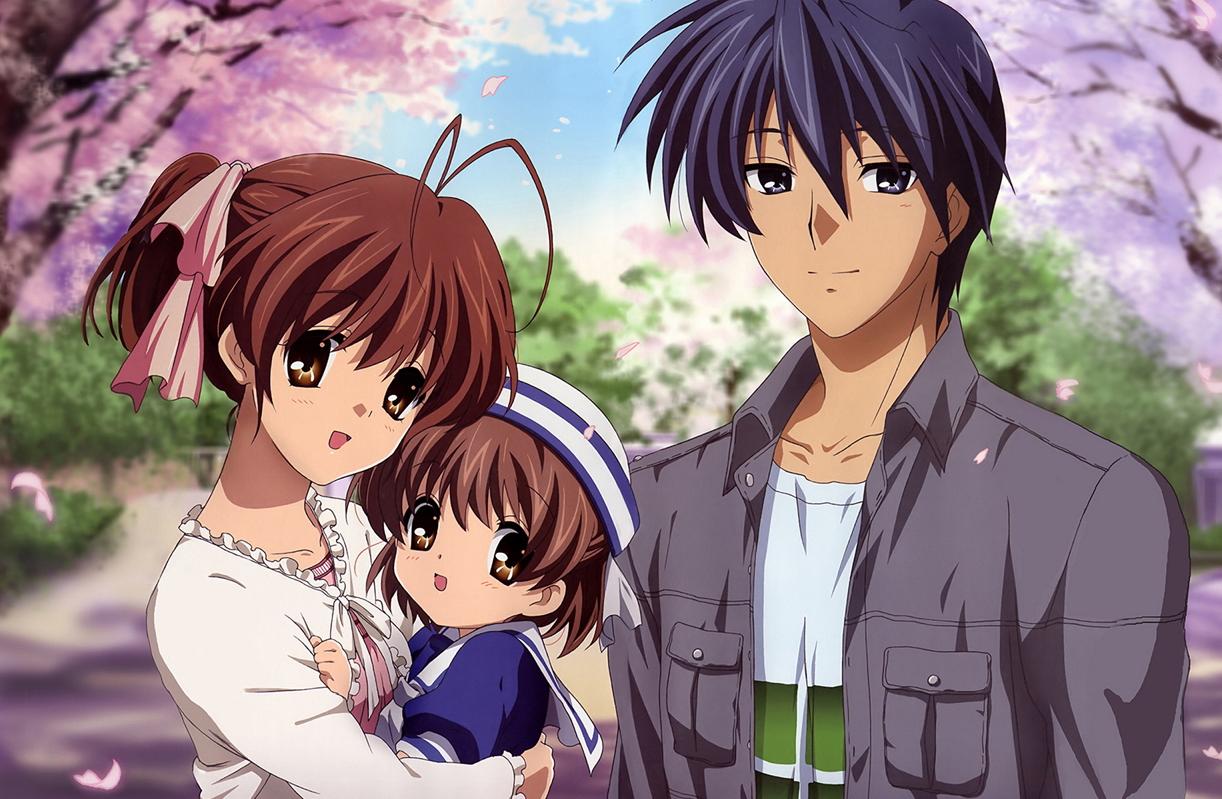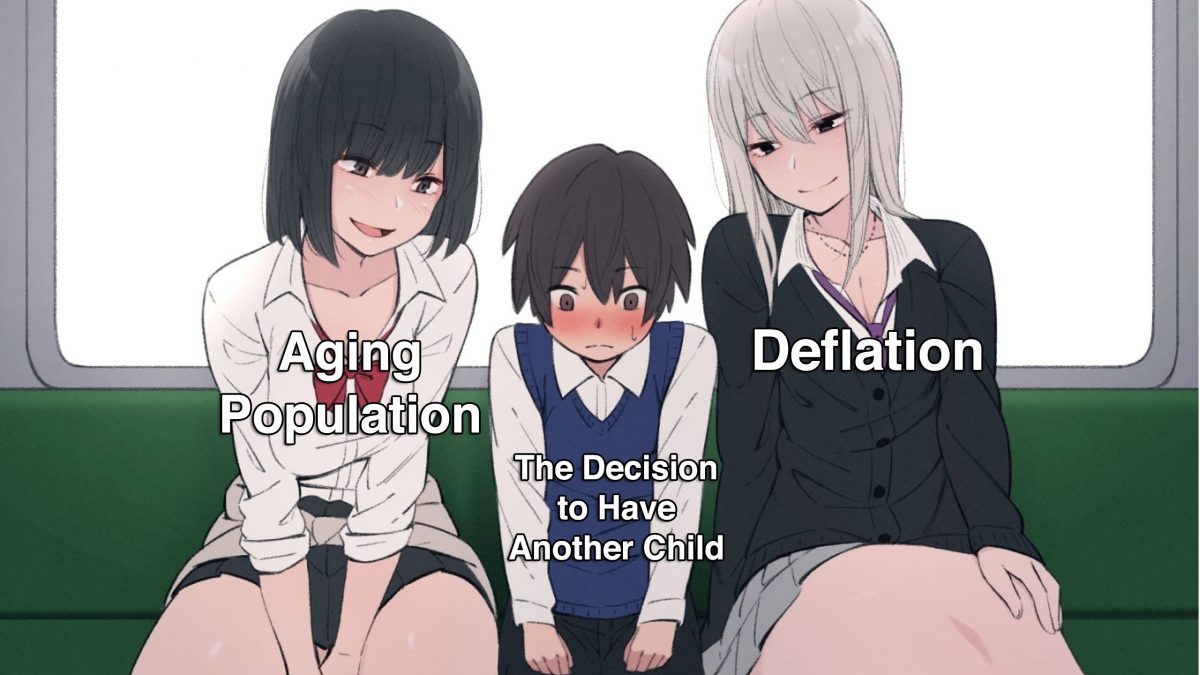
One problem that gets discussed a lot is Japan’s low birth rate, and what it means for the country’s future as a major economic force in the world. I thought it’d be fun to explore some reasons why Japan’s birth rate is so low, based on my many years living here. I hope you enjoy this post!
Please note that I’m giving my subjective observations on the topic of Japan’s falling birth rate based on living and running a business in Japan for many decades. If you disagree with any of my opinions, be sure to tell me in the comments below!
First of all, some facts to set straight about Japan’s birth rate. Our collective love for Japan often causes us to obsess over the country and over-generalize the bits of information about the country we know. Here’s some data…
- At 1.37 babies per female in 2019 (source), Japan’s birth rate is far from the lowest in the world. It currently stands at #14, with countries like Spain, Italy, Portugal, Greece, Singapore, and Taiwan all lower. The “winner” of the lowest birth rate competition is South Korea, at just 1.11 children born per female.
- Japan’s birth rate has actually recovered somewhat, after hitting its lowest point (1.26 babies per female) in 2005.
- Relatedly, the “meme” of Japan having the highest suicide rate in the world is also incorrect. As of 2016, Japan ranks #30 on the list of countries by suicide per 100,000 people, lower than Taiwan, India, South Korea, Belarus, and Russia. The country with the highest suicide rate is Guyana. (source)
The real issue is that Japan, one of the world’s great economic success stories, has not one problem but two: a low birth rate which is insufficient to maintain its population and presumably, it’s future economic standing in the world; and a general lack of net immigration, in part because Japan’s immigration laws have at times created barriers that make it hard for foreigners to come to live here. Also, most foreigners who come to Japan to work often return home after a few years rather than staying permanently and adding their DNA to the nation as a whole (literally in my case, through my two wonderful kids). Happily, the immigration situation might finally be changing, at least for some industries.
The Japanese are well aware of the demographic challenges they face and discuss it regularly in the media. There are national and local government programs that encourage childbirth in various ways, including giving a monthly stipend for families with two or more minor children, making public and even private schools free and covering medical bills for expectant mothers. When each of our kids was born, we received a $3,000 “congratulations bonus” from our city, which was very helpful with all the costs that come with raising children.
Japan’s birth rate challenges have become part of popular culture, too. In the (sadly forgotten) anime Sora no Woto, the characters discuss the ancient race of technologically advanced people who died out many centuries ago, who were the Japanese. And news reports of how low the current year’s crop of newly minted adults always appear on Coming of Age day in early January, like clockwork.
Reasons Why Japan’s Birth Rate Is So Low

It’s a Natural Result of Industrialization
First of all, falling birth rates always go hand in hand with industrialization, and whenever a country modernizes, its birth rate will generally fall as life expectancy and economic opportunities rise. Japan’s birth rate was around five babies per female at the start of the 20th century, then steadily marched to its present level in the postwar decades. In the mid-80s the birth rate reached 1.57 per female, creating a sudden panic about the future of the nation, which was labeled “1.57 shock” at the time.
Make no mistake, when a country modernizes and industrializes, the outcome is almost always positive. Food availability, health, and longevity increase, child mortality decreases, and everyone has more time to pursue a fuller, richer life because they’re not down by the river doing their laundry like Russian serfs or slaving away in the rice paddies all day. Since there are more desirable economic choices available to both men and women, the number of children needed to maintain a happy family unit is lower.
The High Cost of Raising Kids
I often write about how Japan is an easy country to live in because there’s been basically zero inflation since the bursting of the huge Asset Bubble in 1991, during which all the land in Tokyo was worth more than all the land in the U.S. on paper. Having a low inflation rate means the economy grows very slowly (if at all), but at least your rent doesn’t go up. Actually, rents in Japan generally fall, because the building you’re renting is older each year, and hence, the amount the landlord can charge to tenants is less. Wouldn’t that be nice in San Francisco?
Despite the lack of economic pressure from inflation, every parent knows the amount of dedication — both emotionally and financially — it takes to raise a child to adulthood, and this is obviously a big reason why couples might be okay with having fewer kids than their parents did.

Anxiety About Japan’s Future
When the world went through the economic crisis of 2008, countries like the U.S. had a great model to draw lessons from: Japan. They could literally do the opposite of what “Japan-senpai” did (or didn’t do) when its bubble burst in 1991 and things would be okay, which is what arguably happened. While Japan hemmed and hawed for nearly a decade about whether to recapitalize its banks when the crisis hit, America was able to swiftly come to the rescue of its banks and several other industries and avoid Japan’s fate of two back-to-back “lost decades.”
The biggest fear hanging over the heads of Japanese couples is what kind of retirement new babies born today will face when one in four Japanese are already over the age of 65, and young people will presumably have to work harder and longer to support their parents.

Poor Life/Work Balance Makes Starting a Family a Challenge
We all know that the Japanese work long hours, though this is one of those things that’s hard to judge accurately just from memes we see through the “lens of the Internet.”
According to Wikipedia-sensei, Japanese rank #20 in actual hours worked per year, fewer than the U.S., Israel, South Korea, Mexico, and China. This makes me a) wonder if Wikipedia’s numbers are all that reliable, and b) really want to buy a beer for the next American, Israeli, South Korean, Mexican, or Chinese I encounter in Tokyo because they’ve earned it.
On the one hand, Japan has an intense work culture where workers are expected to issho-kenmei ganbaru (do their best with all their might) by default and are celebrated by society for being the hardworking backbone of the nation. But as I’ve written, I believe that Japanese companies are generally well regulated by the government and, with the exception of abusive “black companies,” the meme of Japanese literally working themselves to death is rare and will hopefully improve in the future. I can certainly say that all employees of J-List get properly paid for any overtime they work, take all their paid time off days, go on trips abroad and do lots of non-work related things that are important for anyone to be happy.
But clearly, if the Japanese government really wants to hit its goal of increasing Japan’s birth rate to 1.8 by 2026, there needs to be a “revolution” inside Japan’s business culture. It’s not just about the policies of the companies themselves, but receiving support and understanding from coworkers, rather than sideways glances at a coworker who took a day off because their child had a fever.
Also, there are some cultural traditions that need to be upgraded, like the broad expectation that a woman will quit her job when she gets pregnant, called kotobuki taisha or “congratulatory retirement from the company.” This is less common in cities like Tokyo and more common in more rural areas where J-List is located. (I’ve lost more outstanding female employees at J-List to this tradition than I care to recall.)

Please note that Japan is a great place to raise kids.
One topic I’ve written about repeatedly in my 20+ years of blogging about Japan is how impressed I’ve been with how the Japanese treasure every child and work to ensure they are raised to be a happy and complete member of society. Everything from programs set up by cities to ensure healthy child development and vaccines to the importance of education impressed me and made me wish my own country could do better.
Mrs. J-List and I recently moved from Gunma to Tokyo on the weekends, since our kids have grown up and left the nest. While my perception of sprawling Tokyo was generally a jungle of concrete and asphalt where trying to raise children would be a hellish experience, I’ve been pleasantly surprised to find more greenery around us than in Gunma. There are two large parks nearby and I always see parents bringing their children there to play. My subjective view is that everyone is happy and satisfied, even in a big city like Tokyo.

Herbivore Males and Parasite Singles
The Japanese media just loves to think up labels for new social trends, such as hotaru-zoku, the “firefly tribe” of middle-aged men who’ve been banned from smoking in their homes by their wives, so they go out on the veranda to smoke alone, their cigarettes moving like fireflies in the dark. The terms bara and yuri (meaning rose and lily) were coined in the 1970s to describe the new gay and lesbian literature that had started to appear on the scene at the time.
One term that appeared in 1999 was “parasite singles,” an unkind word for adult children who never leave their parents’ home, instead of using all their disposable income to buy expensive clothes or take trips to Hawaii. They never save money or find partners to marry and start families with. While a form of “millennium bashing,” the term does describe a real change in Japan’s society. My Japanese father-in-law was born in 1937, the youngest of 8 children, and in those days you had to work really hard to make your mark in the world. Members of the “parasite” generation, who are often only children, can just inherit their parents’ homes and land, and thus, they don’t need to struggle much in life.
Another word that describes Japan’s modern era is soushoku danshi, literally meaning “herbivore males,” which describes a type of Japanese male who’s happy to eat a salad instead of going for a steak: in other words, a man with a lower level of ambition and sex drive. These males never nampa (a Japanese term for aggressively trying to pick up girls they meet in public), and if a girl invites him to her place he might (gasp!) just go to sleep rather than have sex with her. I’ve got an Italian friend in his 40s who loves this trend in wishy-washy Japanese males. Because most Japanese men in their 20s are “salad-eaters,” he gets to date lots of girls, some half his age, because he’s the only one in the bar who bothers to chat them up.
TL;DR Japanese young men have basically become Shinji from Evangelion.
Social Awkwardness is Creating Wizards
You’ve probably seen the headlines about how one in four Japanese aged 25 have never had sex and more than half are not currently in a relationship. Despite being famous as the most perverted country in the world, the Japanese lose their virginity later than almost any other country, and many never bother giving up their V-card. And this is in a country with no Christian pressure to “save yourself for marriage.”
Deciding to not have sex is a perfectly reasonable choice, but when it’s done out of fear of embarrassment or of being hurt, or cynicism about relationships, or because you don’t have the first clue how to act around the opposite sex, it strikes me as a very sad thing. And the Internet often adds to this trend, as online groups like 2chan and 4chan reinforce negativity towards relationships in ways that can’t be healthy for individuals or societies, trashing リア充 ria-juu or those living happy, well-adjusted lives with a romantic partner. If you are part of a negative online community like this, consider unplugging from it and making changes in your online and offline social habits. The fact that I see both men and women lamenting not having someone to date on my Twitter feed daily means there’s plenty of opportunity for us all to find someone special…even someone to watch anime with.

A Lack of Patriotism?
As I wrote in my post about the most influential foreigners in Japan, Japanese generally revere Douglas MacArthur for dealing honorably with their nation after its defeat, allowing the Emperor to keep his dignity and making many wise decisions that helped ensure the long decades of peace Japan has enjoyed since the end of the war. While some of this might be Japanese “talking to the American,” I’ve encountered enough positive comments about MacArthur that I believe them to be valid.
But in addition to de-militarizing Japan, one thing MacArthur wanted to do was neuter extreme nationalism, which was so dangerous to other nations. According to theories I’ve seen on Japanese forums, one result of removing Japan’s nationalism was also removing the basic and healthy patriotism that most of us would hopefully feel for our own countries. Could this be one reason contributing to Japan’s current social malaise? I’m not sure I would agree, but it’s a theory I see discussed on Japanese websites, so I thought I’d put forth nevertheless.

Are Anime/Porn/Hentai Games to Blame for Japan’s Low Birth Rate?
As an anime blogger and professional-poster-of-naughty-gifs-and-memes to social media, I often get comments like, “This explains why Japan’s birth rate is so low.” These comments usually give me pause.
Does having access to porn (not unique to Japan by any means) lead to less interest in sex? Maybe, since it’s such a convenient alternative to going out and meeting people. Japan takes things a few steps further by making such amazing alternatives to actual dating, like visual novels in which super-cute harems of cute girls will vie for your attention and let you have sex with them. And dakimakura “waifus.” And J-List’s popular dolphin polishers. And games in which girls date super-hunky guys who no real male could ever measure up to. And so on…
I’ve come to believe the answer to a complex question is never 100% “yes” or “no” but always something on a continuum between the two extremes, and we’d all do better to take this approach when thinking about solutions to the problems we all face. So, when considering whether porn, or anime, or games that let us experience simulated love are affecting our society in new and unpredictable ways, I’d have to answer, “Yes, to a non-zero degree.”

Is Technology To Blame?
When I first arrived back in Japan in 1991, young people in my home prefecture of Gunma didn’t have much to do, so they drove around the local train station in flashy cars looking for cute girls to pick up, a practice locally known as “driving the rotary.” It was a fun thing to do on a Friday night, and sometimes you’d get lucky and find a girl to take home.
Fast forward to today, and technology has changed pretty much everything we do. I can usually be found browsing Reddit or Facebook or engaging with J-List’s Twitter followers. I never go anywhere without my phone and iPad, and use them far more than I should. I still love human interaction and love to explore interesting bars and temples in Tokyo, but often the people I’m interacting with are online rather than in meatspace. If I’m part of a big enough trend, then it’s one more reason why there’d be fewer babies.

Sexless Marriages and Social Proof
One of the most interesting books I’ve read is Influence, by Robert Cialdini, which explains much of the world we live in. I think every thoughtful person should consider reading this book.
One phenomenon you’ve probably heard of is Japanese marriages becoming “sexless,” as married couples fall away from enjoying regular horizontal sexy time together. Often these marriages are perfectly happy, they are just devoid of physical sex, which is certainly fine. But since we all influence each other, the “meme” of sexless marriages might lead to more sexless marriages. Similarly, when every family has only one or two children, the idea of “social proof” is that this is normal, which everyone follows automatically.
Another possibility is that Japanese men are dying and being reincarnated as slimes in isekai worlds. Yes, that’s probably it.
What Can Be Done About Japan’s Birth Rate Problem?
This is a difficult topic to tackle. Since we can’t turn back the clock on technology or any of the other changes that have generally made life better today than it was 50 years ago, it’s probably a trend we can’t ever reverse. But here are some random ideas.
- Identifying some of the specific issues that keep couples from wanting to have children. The list is long and includes things like availability of slots in preschools (important for couples when both parents work) and prenatal care at hospitals (in rural areas, these departments are often closed or merged with other hospitals many kilometers away, creating anxiety for pregnant women).
- I have an American friend whose Japanese wife had trouble conceiving, and they spent tens of thousands of dollars on treatment before finally having a wonderful daughter. Perhaps society should be re-structured so that people who are in this situation will not have to endure this financial burden? It seems like a no-brainer to me.
- Some of the greatest achievements in the world we live in have come from competition. Could nothing be done to get South Korean and Japanese males to feel competitive on this subject and try to “out-improve” each other where birth rates are concerned?
- Speaking of competition, I’ve generally observed that international marriages between Japanese and foreigners tended to have two or more kids, and seem less likely to descend into “sexless” marriages. Maybe foreigners like us need to step up our game and date/marry more Japanese people, for the sake of the country that we all feel such a connection to. It’s a hard sacrifice, but one I’m willing to make. Who’s with me?
I hope you enjoyed reading my random thoughts on Japan’s birth rate challenges. Tell us what you think in the comments, or on Twitter!

















